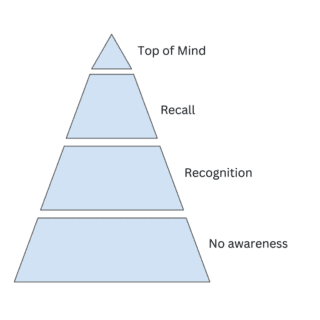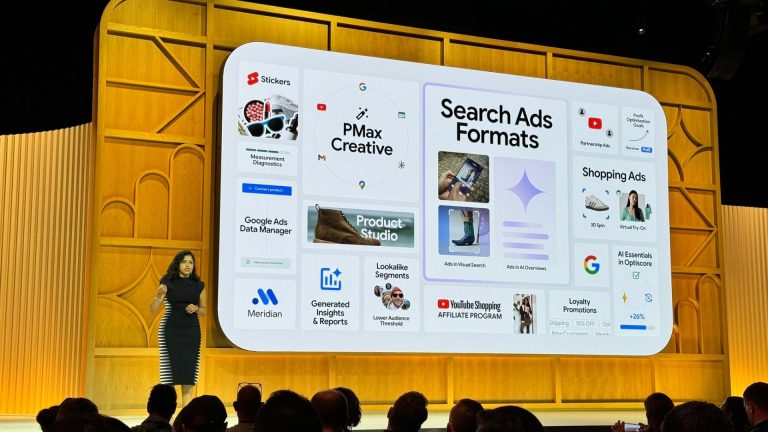
Abby Webb
Strategic Director
Abby head up our SEO campaigns, with a strong background in copywriting, content and paid search marketing campaigns.

Learn how energy companies can use digital marketing to reach diverse audiences, increase visibility, and drive more conversions.
The energy sector is growing and changing, with renewable energy expected to compose up to half of the UK’s electricity by 2025. In today’s landscape, energy companies need to harness the power of digital marketing to effectively connect with their diverse audiences and stand out in a crowded marketplace.
First, it’s important to understand that the energy sector contains a wide variety of businesses with different audiences. Some will need to talk directly to end consumers. Others, like SMS (Smart Metering Systems), will be primarily B2B, and will need to be able to reach other businesses as a priority. Often, energy companies will have multiple audiences, each requiring a different approach.
Your digital marketing strategy’s success will depend upon your understanding of your audience – their level of awareness of your products and services, their understanding of industry terms (or lack thereof), what they’re searching for online, and how they’re searching for it. Putting yourself in their shoes isn’t easy, especially when you’re immersed in the energy sector. Fortunately, there are some principles – and some tools – which can set your energy company’s digital marketing strategy up for success.

To communicate effectively with your audience, you need to understand their level of awareness. Here’s an example:
Imagine your organisation provides half-hourly meters to businesses. These allow them to track their energy use more accurately, which in turn allows them to use their energy more effectively, saving them money in the long run.
There’s only one problem.
Your audience for this product – business owners – might not know what a half-hourly meter is. So, while your website might be appearing in Google Search for queries like, “what is a half-hourly meter,” you’re missing out on connecting with a huge part of your potential audience who doesn’t know that you have the solution to their problem yet.
That problem is the need to reduce energy consumption, save money, and achieve ambitious Net Zero targets. You need to be able to raise awareness of your service among people asking broader questions like “how to reach Net Zero”, “save money on energy” or “become more energy efficient”.
In other words, you need to start raising awareness among people who are aware of the problem they face, but not the solution you provide.
This is what we call “See Stage” or “awareness” marketing activity, and it’s vital to your digital marketing activity’s success, especially in a sector like energy where brand loyalty is low.

There are a few ways you can approach the See Stage. You could run Paid Search activity, using Google Ads that target keywords related to your audience’s problem (“help reaching Net Zero”) and raising awareness of your solution (“half-hourly meters“). You can also target your audience through Organic Search – activity designed to make your website and your solutions appear in Google Search.

Creating content for your site is a great way to increase its visibility on Organic Search and raise awareness of your brand. For example, you can develop an “Insights” section of your website which hosts articles written to address your audiences’ major questions and concerns.
To stick to our half-hourly meter example, this content could include topics like:
This kind of content focuses on the challenges your audience will understand even at a low level of awareness of your products and services. They’re an opportunity to increase the visibility of your website in Google Search and awareness of your solutions. This is incredibly important in the long-term, and very often overlooked.
Naturally, some of your audience groups will have a more in-depth understanding than others, but err on the side of caution. Adding FAQs to your website’s services pages can help get your audience up to speed and also drive target from common Google Search queries to your website.
If your business operates electric vehicle chargers, for example, then an FAQ on your EV charger page which explains which vehicles can use which voltage is going to be both useful to consumers and directly connects to Google Search queries like “which chargers can my EV use?”

To populate your site with useful content, whether it’s articles in an Insights section or FAQs, you need to understand exactly what questions your audience is asking. Here are some useful tools to help you do just that:
By leveraging these tools, you can ensure your content directly addresses your different audiences’ most relevant and timely questions, enhancing your website’s visibility and providing real value to your audience.
We’ve already talked about how your different audience groups are likely to have different levels of awareness and understanding of your products and services. But how do you actually separate them out?
Making sure that your website is very easy to navigate, and that your different products and services are clearly sign-posted to visitors on the homepage, can make all the difference. For example, you can create distinct sections or tabs on your homepage tailored for different audience segments – such as “For Homeowners,” “For Businesses,” and “For Drivers” (assuming, of course, that your business caters to these groups). This allows users to quickly find the information most relevant to them without feeling overwhelmed.
You can also use targeted landing pages that address the specific needs and questions of each audience segment. For instance, a landing page for homeowners interested in solar panels should address common questions and concerns about residential solar energy, while a page for business owners might focus on the financial and environmental benefits of large-scale renewable energy solutions.
If you’re running Paid Search activity, your Google Ads can lead to these different landing pages depending on which audience each ad is targeting.
Raising awareness of your energy company’s services, connecting with your audience, and ultimately driving conversions isn’t easy. But with a robust digital marketing strategy that understands your business goals, your audience groups, and the channels and marketing activity best suited to meet them, you will see significant improvements in engagement and visibility.
Implementing a well-planned strategy allows you to deliver relevant information to your audience, whether they are consumers or other businesses, and guide them through their decision-making process. By mastering the art of targeted digital marketing, you’ll not only raise awareness of your brand’s strengths but but build up your audience’s trust in the long-term, setting the stage for lasting success.

Strategic Director
Abby head up our SEO campaigns, with a strong background in copywriting, content and paid search marketing campaigns.
View my other articles and opinion pieces below
Google’s AI search demands higher standards for YMYL content. Learn how to keep your financial, legal or health advice visible, trusted and compliant.

At Google Marketing Live 2025, the focus was clear: AI is already changing the way people search, and as a result, it’s changing what brands need to do to show up in search results. Here’s what you need to know – and what it means for your marketing.

Love it or hate it, everyone’s seen it. Google’s AI Overviews are changing the way your search results appear. Now, AI-generated summaries will often answer user questions before the usual list of site links we’ve come to expect. In fact, 47% of Google Search results now include an AI Overview – at least, according to AI […]

Let’s cut to the chase. Your organisation has a solution which is going to positively impact the world. You also have a target audience that you need to take action before you can make that impact. That audience could be potential clients, it could be investors, it could be the government – it could be […]
